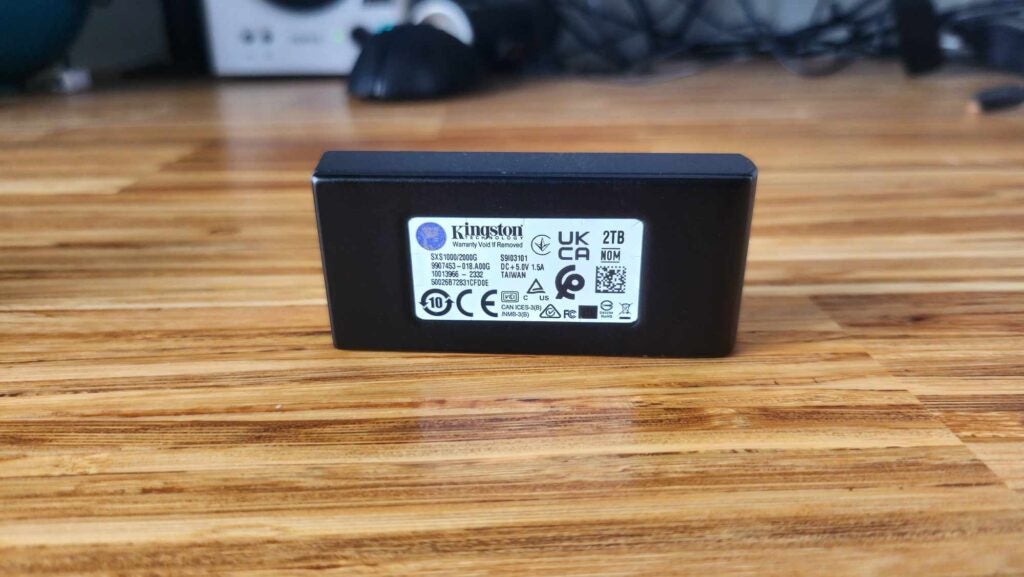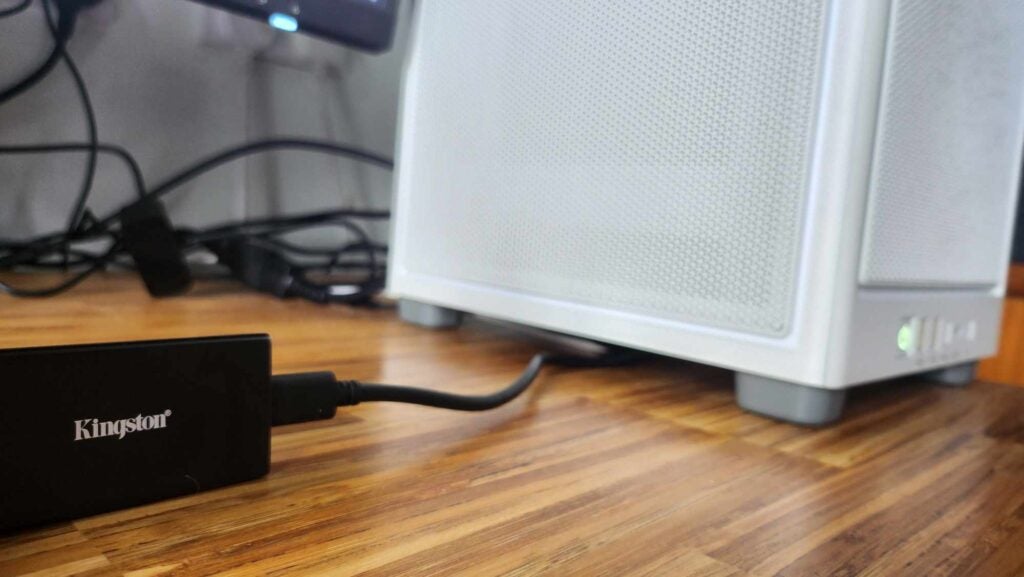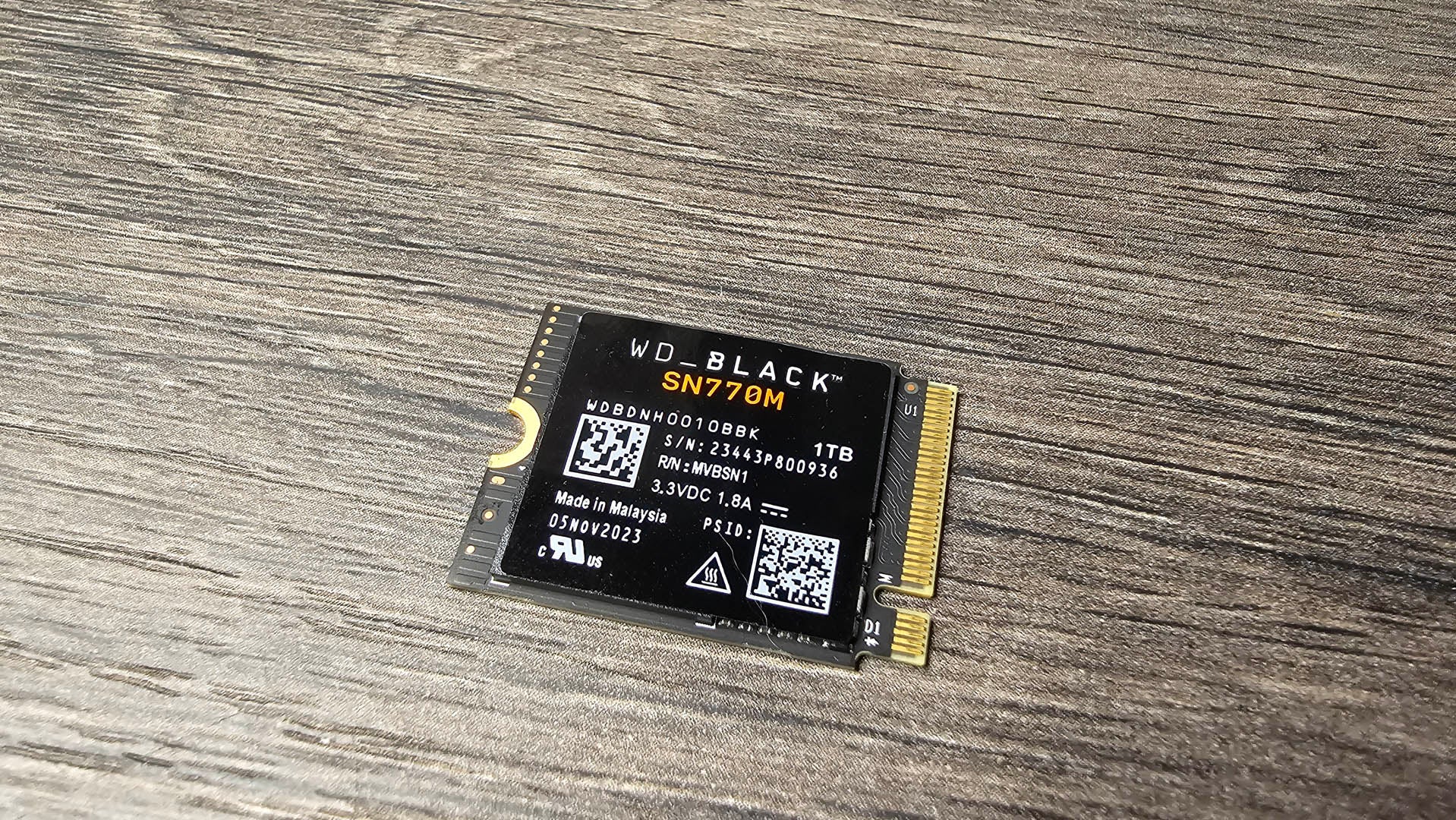Kingston XS1000 External SSD Review
Compact and capable external SSD




Verdict
The Kingston XS1000 is a small but mighty external SSD for all your file transfer and data storage needs with respectable sequential performance at a good price point, even if it won’t turn many heads in the process.
Pros
- Compact design
- Decent sequential performance
- Competitive price point
Cons
- Far from the fastest portable SSD
Key Features
- Small form factor The Kingston XS1000 comes in at a truly tiny 69.5mm x 32.6mm (2.7-inches x 1.28-inches) and weighs less than 29g.
- Strong sequential performanceThrough USB 3.2, you can expect sequential speeds of up to 1,050 MB/s which is on the faster side of what you’ll see from a current-generation portable SSD.
- Up to 2TB storage You can pick up the Kingston XS1000 in either 1TB or 2TB configurations which should be more than enough for your needs.
Introduction
Kingston has a long-standing reputation for putting out some of the better performing NVMe and external SSDs in recent memory and the XS1000 looks to be no exception.
Sporting good sequential performance, and a more humble price than the brand’s more premium offerings such as the XS2000 to suit most people.
For context, this newly released drive comes in at around half the price of the Kingston XS2000 as you can get 1TB (£60.99 / $64.99 / AU$106.76) for around the same price as you would pay for 500GB from the older model. This does come at the price of performance, though, and that’s because the older portable flagship can do nearly double the sequential performance, topping out at 2,000 MB/s.
Over the last several years there has been a shift towards USB 3.2 and USB-C connections for ultra-slimline and portable drives boasting far better performance than your average desktop SATA. While still nowhere near as fast as today’s NVMe Gen 4.0 or Gen 5.0 tech, the Kingston XS1000 remains a valid option for storing and playing games as well as keeping data secure.
Design
- Pocket-friendly design
- Max storage option limited to 2TB
- Uses USB 3.2 connection instead of USB-C
The big selling point of the Kingston XS1000 all comes down to just how sleek and small it is, being perfectly pocket sized with a weight of just under 29g. This is compounded by its physical size of 69.5mm x 32.6mm (2.7-inches x 1.28-inches) which is even smaller than the current crop of M.2 drives made by the company such as the Kingston Fury Renegade.
The chassis is made of a mixture of black plastic and metal with the overall aesthetics kept straightforward. It’s brushed with a matte finish and has the Kingston logo adorned in white on the top.

It’s all quite basic here, and for the overall sticker price that’s not entirely surprising. The portable SSD utilises USB 3.2 instead of USB-C so it should be compatible with most PCs. You can pick up this model in either 1TB or 2TB configurations. At present, there does not appear to be a 4TB variant in the works.
This is in contrast to the older XS2000 model which boasted not only a 4TB version, but also a waterproofing rating of IP55 as well as dust and shock resistance with an included rubber sleeve. No such things are included with the KS1000, so you’ll need to be extra careful when taking this new external SSD out on the go with you.
Performance
- Up to 1,050 MB/s sequential performance
- Good file transfer times
- Competitive price-to-performance
Kingston claims that the XS1000 is able to perform at up to 1,050 MB/s sequential read and write respectively, and in my testing I’ve found that this claim largely holds true.
Through CrystalDiskMark, the external drive performed with a total of 997.25 MB/s write and 977.68 MB/s read which is just 5% slower than the total claimed maximum performance. This is solid, and significantly faster than a traditional SATA model. The results are similar in AnvilPro as the Kingston XS1000 scored a total of 4,697.69, too.

Random performance of the Kingston XS1000 is equally solid as well with 195.99 and 259.43 read and read respectively. All told, this level of performance is ideal for a docked Steam Deck, a gaming laptop, or any number of portable gaming PCs, or as a replacement for an older SATA model. It’s particularly impressive given the tiny form factor and the use of USB 3.2 instead of USB-C which more devices are likely to support even in 2023.
File transfer speeds aren’t terrible either. That’s because 22.7 GB of data made the jump from an internal Gen 4.0 drive onto the Kingston XS1000 in 1 minute and 12 seconds (or 72 seconds). While not quite 1GB/sec, that’s still fairly fast, and good if you’re looking to backup potentially thousands of files at any one time. This test file consisted of thousands of documents and images, so things are fairly solid when all is said and done.
Latest deals
Should you buy it?
You want a competitively priced and small form factor high-speed external SSD
The Kingston XS1000 is aggressively priced for both 1TB and 2TB configurations while living up to its potential of around 1,000 MB/s sequential read and write respectively.
You need the absolute fastest external SSD or greater capacity
While up to 1,050 MB/s is likely to be enough for most people, it’s far from the fastest in the form factor. That’s because the older XS2000 is capable of up to 2,000 MB/s which rivals some Gen 3.0 NVMe models and is available at 4TB, too.
Final Thoughts
The Kingston XS1000 does exactly what it sets out to do by providing good performance at a price that’s hard to argue against. You aren’t getting leading sequential rates, nor the biggest amount of storage seen at the form factor, but for most people, this is likely to be all you need for a gaming setup or as a handy backup drive.
How we test
When testing an SSD, we use both synthetic benchmark tests, while also determining file transfers via both Steam and Windows explorer.
We also factor in the likes of price, design and temperature when reaching a final score.
Used industry-standard benchmarks to evaluate performance.
Transferred over files to test real-time performance.
FAQs
The Kingston XS2000 has a faster performance, higher capacity options and more durable design with water and dust resistance.
Yes, this is an external SSD so it is easy to plug into a laptop or PC as long as you have a USB 3.2 Gen 2 port.








